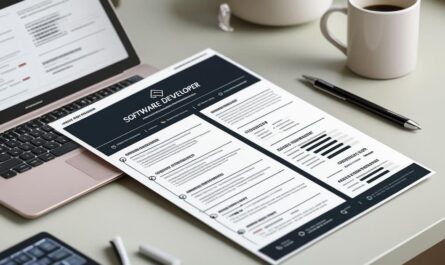Front-end developer interview guide. Interviews can sometimes feel like stepping into a room full of unknowns. If you are aiming for a front-end developer role, understanding the format and having a solid prep strategy can make you feel more confident, and that’s exactly what this front-end developer interview guide is designed to help you with.
You will find ideas that are practical and hands-on, helping you navigate the types of questions, tasks, and discussions that typically come your way. Meanwhile, you’ll get a good sense of what companies are looking for today, keeping you ahead of the curve.
Technical Skills to Master for Your Front-End Developer Interview
Firstly, when you think about front-end development, it’s not just writing code. You are shaping experiences that users interact with directly. Being ready for interviews means that you bring both technical grasp and a problem-solving mindset to the table. Your preparation should touch on common web technologies like HTML, CSS, and JavaScript, but also newer tools, frameworks, and performance optimization techniques. This front-end developer interview guide will put special focus on these aspects, showing you how to reinforce your knowledge and show your skills effectively.
Deep Dive into Core Technologies
Secondly, expect your technical abilities to be probed deeply. Interviewers typically explore your understanding of client-side technologies. You should be fluent with responsive design principles, accessibility standards, and browser compatibility challenges. It’s common to be asked about CSS preprocessors like SASS or LESS, and JavaScript frameworks such as React, Angular, or Vue.js. The key is not to memorize answers but to demonstrate how you think through problems and apply best practices in real situations. You might be given coding exercises or whiteboard problems testing logic, coding style, or debugging abilities. It’s important to showcase clean, maintainable code.
The Role of Soft Skills and Team Collaboration
Thirdly, beyond technical skills, your grasp of soft skills and team collaboration is often evaluated. Front-end projects usually work with UX/UI designers, back-end developers, and product managers, so communication and adaptability count a lot. You should be able to discuss past experiences or projects where you worked on a team, handled feedback, or contributed ideas that improved the product or process. This human element is sometimes overlooked but often makes a difference. Interviewers value candidates who can explain complex technical concepts clearly and who are open to continuous learning.
Building a Portfolio and Preparing for Common Questions
In understanding what you should focus on, this front-end developer interview guide suggests dedicating time to build a portfolio or have GitHub repositories ready for review. Real projects or contributions to open source speak louder than theoretical knowledge. Also, you can prepare by reviewing common interview questions like explaining event delegation in JavaScript, the box model in CSS, or the difference between var, let, and const. Practice coding problems on platforms like LeetCode or HackerRank to build speed and confidence.
Importance of Web Performance and Testing Knowledge
There’s also the aspect of keeping up with web performance optimization because sites need to be fast and efficient. Knowing how to leverage lazy loading, minimize bundle sizes, or use browser caching could come up during discussions. Meanwhile, understanding testing frameworks like Jest or Cypress for front-end testing can set you apart as a candidate who cares about quality.
Asking Questions: Showing Your Engagement
One important thing you should remember is to prepare questions for your interviewers too. This shows that you are engaged and serious about the role. Asking about team structures, project workflows, or how the company approaches front-end challenges can drive a two-way conversation and leave a positive impression.
Lastly, doing mock interviews or peer reviews can be very helpful. They mirror real interview conditions and help you identify areas needing improvement. Meanwhile, staying calm and well-rested before the interview ensures you can think clearly and communicate effectively.
Final Thoughts on Preparing for Your Front-End Developer Interview
Overall, this front-end developer interview guide reminds you that preparation is about building confidence through knowledge, practice, and communication. The landscape is always shifting, but solid fundamentals and a proactive learning attitude remain your best tools. By focusing your efforts on both technical details and interpersonal skills, you place yourself on a stronger path toward landing that role and making a meaningful contribution in your new job. You can succeed in your front-end developer interview by systematically working through these points, staying curious, and remaining adaptable to what each opportunity might bring.
If you want tips on top tech firms, this guide is very helpful for: Software engineers top tech companies to work for 2025 guide.



